CIQC News

CIQC’s Impact in Action: Building Quantum Careers in Mathematics
Behind the scenes of NSF’s CIQC is a powerful story of workforce development: mathematicians without any prior exposure to quantum science are emerging as leaders in a rapidly expanding field, thanks to a training model that’s both rigorous and deeply interdisciplinary.
Announcing CIQC Winter School 2025
Quantum Error Suppression, Mediation, and Correction
In-person at UCLA, hosted by IPAM
February 3-5, 2025
Apply today: https://tinyurl.com/3ecj3nyd
The Challenge Institute for Quantum Computation (CIQC) together with the Institute for Pure and Applied Mathematics (IPAM) are pleased to present the Fifth annual Winter School in Quantum Information Science. This year’s school will return its focus to the topic of our first school, Quantum Error Correction, held in early 2021. Enormous progress has been made in the field, in particular experimental demonstrations of error suppression and mitigation schemes and demonstrations of a number of quantum error correcting codes. The school will provide an in-depth primer of classical and quantum error correction, a survey of recent experimental advances, and a tutorial on current research in advanced error correction approaches.
The school is aimed at experimentalists and new theory students working in quantum information science and related fields. We aim to convene a multidisciplinary group of students and researchers who will disseminate and accelerate developments in the field, and to draw on their own research to help inspire new approaches and application domains. Applications are now being accepted. Financial support will be offered to young researchers subject to demonstrated need and availability.
CIQC Winter School Concludes
The CIQC / AMAQIS Winter School has concluded and was reported to be a success by participants.
Here are the links to the IPAM lectures :
Wes Campbell - Introduction to Quantum Information Science
Anna Krylov - Classical Quantum Chemistry for QIS
Nick Hutzler - Optical Cycling Centers
Nick Chilton - Molecular Spin Qubits
Lecture 2 Video
Birgitta Whaley - Quantum Algorithms for Chemistry
Register for the 2024 Chicago Quantum Recruiting Forum!
The annual Chicago Quantum Recruiting Forum brings together the rising generation of quantum scientists and engineers with employers and educators for an event aimed at catalyzing careers. This forum is an outstanding opportunity for students and trainees who are interested in pursuing quantum information through physics, computing, or engineering. Participants will have the opportunity to connect with one another as well as leaders in the field and explore quantum careers and academic pathways through an experiential immersion in quantum innovation.
Participation is open to all trainees, including university students and postdocs in the Midwest; faculty from the Chicago Quantum Exchange (CQE); university partners; and any companies interested in hiring quantum-trained talent. The fourth annual Chicago Quantum Recruiting Forum will be held on April 11th, 2024.
Learn more here: https://chicagoquantum.org/event/2024-chicago-quantum-recruiting-forum

CIQC UCLA to be housed at L.A.’s former Westside Pavilion, the upcoming UCLA Research Park
UCLA is transforming the former Westwide Pavilion shopping mall into UCLA Research Park, which will host two multidisciplinary research centers: the California Institute for Immunology and Immunotherapy at UCLA and the UCLA Center for Quantum Science and Engineering.
Read more about it here: https://newsroom.ucla.edu/releases/ucla-to-transform-empty-mall-into-research-park
Malte Schwarz, GSR, Stamper-Kurn UCB Research Group Highly Recommends Research Exchange Program After UCSB Visit
The CIQC graduate student exchange program allowed to me to visit and work with the ultracold atom labs of David Welds’ group at UCSB. During my time there I spent one week with the Strontium optical lattice experiment; I greatly enjoyed learning about new perspectives on optical lattice experiments from a Floquet and quasicrystal point of view. In addition, I got the chance to learn in depth from their optics setups, ultra-high vacuum setups, electronics, experimental control, analysis, and theory simulations. The experience of working with a team of researchers directly for multiple days in a row is, for me, the key to have fruitful discussions, learn productively from these partners and dive into their research.
Thanks to the funding from CIQC I was able to spend another week working with the potassium (K) tweezer team as well. Given that I’m currently also working on building a K (&Rb) ultracold atom experiment that has many similarities, I was excited to see their setup, learn about the experimental sequence, find inspiration from their choices of optical systems, discuss problems that they encounter and more. I was even able to start the work to get their painted optical-dipole trap up and running and I shared problems, ideas, and thoughts about our K cooling scheme.
For me, this visit has been extremely fruitful - I feel that I’ve gotten a great boost to my academic career in learning great amounts of theoretical and in-depth experimental knowledge that I apply in my own work; I’ve established fruitful connections with other researchers for future collaborations to advance the field of quantum information; Additionally, the fact that my knowledge has already had a helpful impact on the research efforts of this CIQC partner gives me satisfaction. I greatly recommend this exchange program!
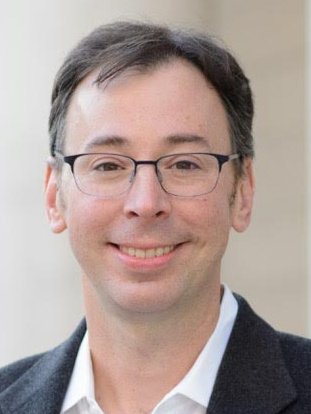
Congratulations Joel Moore, Nick Sherman, and Alex Avdoshkin on your recent publication
In their new work, Universality of critical dynamics with finite entanglement, the goal is to understand how a famous dynamical process, the quantum Kibble-Zurek mechanism, is affected by different kinds of errors that limit entanglement. Since this mechanism is widely used to study phase transitions with quantum emulators and computers, understanding its robustness is crucial to future applications of quantum computing. This work will help to answer the question of how much noise one can tolerate in a quantum computer to have a quantum advantage.
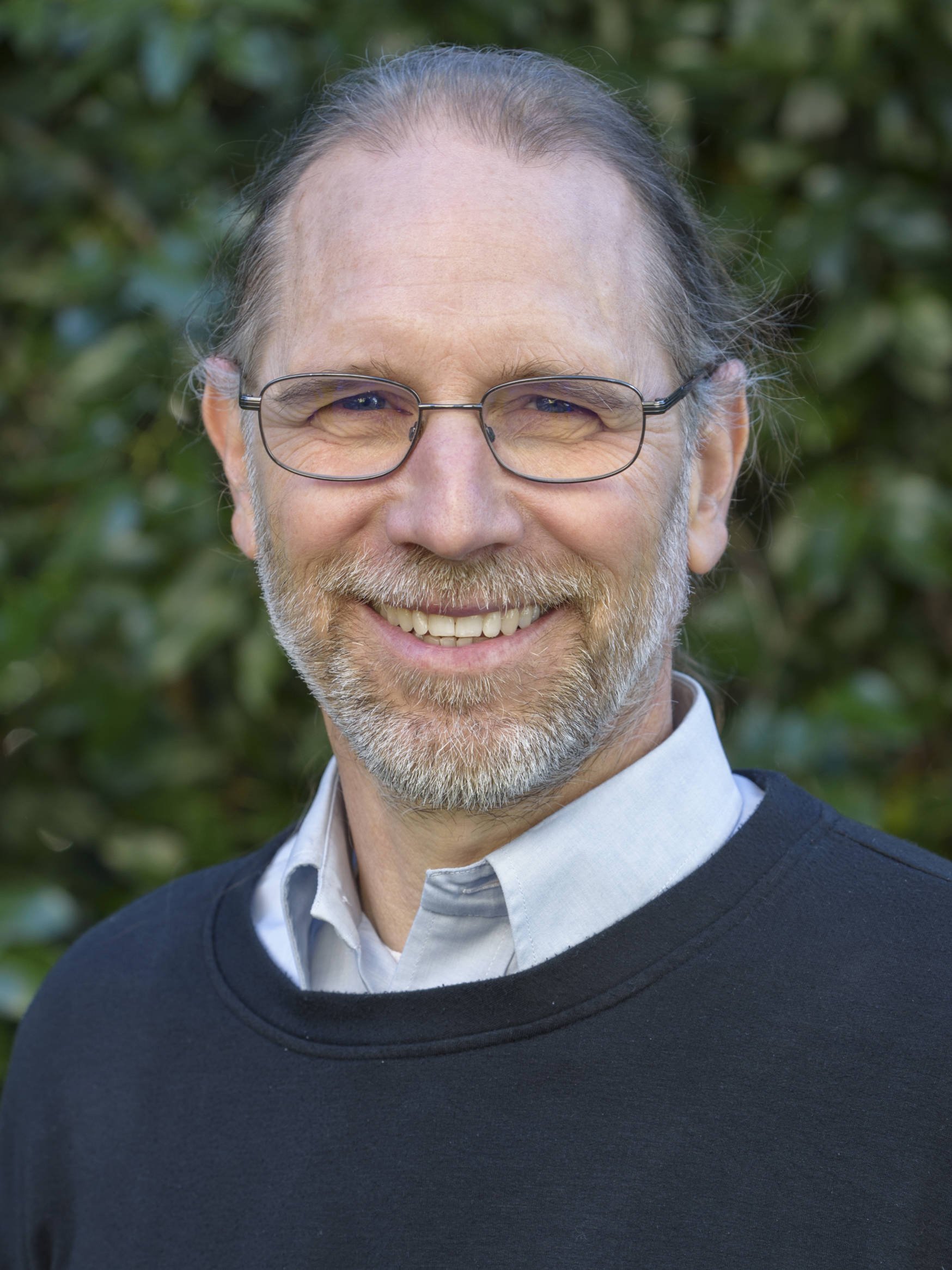
Physicists Make Matter out of Light to Find Quantum Singularities
Former Postdoctoral Researcher and current Yale Assistant Professor, Charles Brown, has recently been published in Scientific American. He explains quantum singularities in accessible language, opening the subject to enthusiastic non-scientists.
Read the full article here.
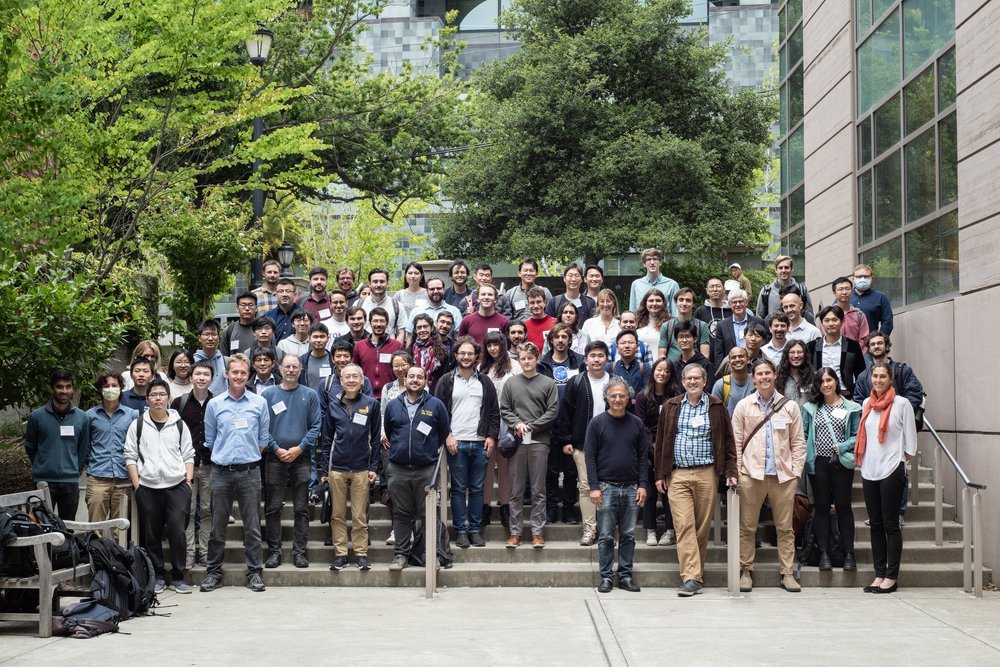
CIQC Annual Meeting June 12-13, 2023
Our Annual meeting was once again held in-person on the UC Berkeley campus. The two day event was highly successful and well received by participants, as we focused on collaboration and creating conversation opportunities throughout.
The conference encompassed presentations, breakout discussion sessions, and posters on the first day. The second day was sponsored by the Simons Institute and provided a wide range of speakers.
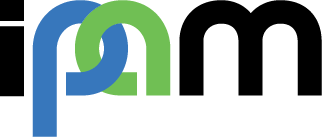
IPAM Fall 2023 Long Program on Mathematics and Quantum Computing
The CIQC has partnered with the Institute for Pure and Applied Mathematics (IPAM) to hold a “Long Program” on the topic of Mathematical and Computational Challenges in Quantum Computing. This program combines in-residence research stays at IPAM, right on the UCLA campus, together with an exciting tutorial to open the program and dedicated workshops during the programs. The program takes place during the Fall 2023 term, September 11 - December 15.
We strongly encourage all CIQC members to consider attending the IPAM program! It would be terrific if you could spend some significant time there, say a couple of weeks. You’ll find yourself immersed in a productive scientific Shangri-La! Please contact the IPAM staff for help scheduling such a stay, making necessary arrangements, and obtaining support.
Not convinced yet? Then check out this YouTube video inviting you to the program:
https://www.youtube.com/watch?v=GGlc_RQc3F8
Many thanks to the many CIQC’ers who are co-organizing the program, coming to IPAM, participating in workshops, and so on. Thanks also to the terrific leadership at IPAM.
Job openings at the CIQC
The Challenge Institute for Quantum Computation (CIQC) is looking to hire excellent people for two open positions: (1) executive director, and (2) scientific communications and community building. Both positions will be based at UC Berkeley and both are in-person (remote work doesn’t make sense for building community and communicating effectively).
(1) For the executive director, we are looking for a person with excellent planning, administrative, communication, and management skills, and, most preferably, a background in quantum science and technology. This leader will interact directly with the Institute Director and leadership team, developing ideas together and empowering us to deliver on Institute initiatives. Domain knowledge is a huge help, giving the ED insight on how to communicate across the Institute, how the different parts of the Institute differ and how to make them work effectively together, how to maneuver the Institute within a constantly changing landscape of QIS, how to connect effectively with campus-level quantum initiatives, and so on. A job ad for the Institute Executive Director can be found here: (LinkedIn posting).
(2) For the scientific communications and community building position, we are looking for somebody who wants to create an intellectually effervescent scientific community. Domain knowledge is again highly preferred. We imagine here a person trained in quantum science/engineering who wants to build a community and coordinate research, education, and outreach activities, perhaps a person who might be looking at science communications, scientific program management, science policy, or some other scientific community engagement down the line. One important function for this person will be creating events/activities that build affiliation and participation, enhance scientific training, promote interactions among scientists within and across fields, and, ultimately, lead to scientific creativity and breakthroughs. This person will be charged with scientific communications broadly, including developing effective ways to communicate across the Institute, finding compelling ways to highlight research accomplishments of the CIQC, and spreading word about the CIQC generally through our website, email, newsletters, social media, and so on. You can view the job posting on HigherEd.com
Stamper-Kurn group graduate students awarded the H2H8 Graduate Research Grant to Advance Humanity
Graduate students Malte Schwarz, Shao-Wen Chang, and Rowan Duim have won research awards from the H2H8 Association, a Bay Area nonprofit organization dedicated to supporting science that deepens our understanding of the world and leads humanity towards a better future. H2H8 research grants acknowledge graduate students in physical and mathematical sciences at UC Berkeley who are dedicated to advancing humanity. These awards will support the Stamper-Kurn group’s quantum simulation work using bosons and fermions in an optical Kagome lattice.
Hartmut Haeffner Research Highlight: Coupling Two Laser-Cooled Ions via a Room-Temperature Conductor
From CIQC PI Hartmut Haeffner’s research group:
Researchers at UC Berkeley have coupled the motion of two ions spaced by
0.6 mm to each other by literally placing a wire between them. The wire
and the electrodes used to trap remain at room temperature while the
ions are at temperatures near absolute zero at -273 degrees Celsius. One
ion was kept "hot" at 250 mK while another ion was kept cold at 2 mK. By
measuring the temperature of the hot ion, the researchers could detect
that the cold ion coupled to the hot ion slowing its heating. Laser
cooling ions is important both for quantum information applications and
precision measurements, however, most ion species can not be laser
cooled. Using the method demonstrated here, we can now cool remote
trapped charges by coupling them to an ion species which can be laser
cooled, thereby opening up a host of applications in precision metrology
and coupling disparate quantum systems to each other.
Read more in Phys. Rev. Lett. 128, 063201 (2022), arXiv:2107.00851.
and the Physics Viewpoint by Christian Tomás Schmiegelow:
“Tin-Can Telephone” Connects Two Ions”, Physics 15, 16.
David Weld Research Highlight: Observation of the quantum boomerang effect
From CIQC PI David Weld’s research group:
By throwing atoms and watching them come back to the starting point, experimentalists have now observed for the first time a dynamical feature of disordered quantum matter called the “quantum boomerang effect.” More than 60 years ago Phil Anderson pointed out that quantum mechanical effects of disorder in a material can localize electrons– that is, prevent them from leaving a small neighborhood, thereby turning a metal into an insulator. Only recently, theorists predicted that if a particle is launched in any direction in an Anderson insulator, it will return to its point of origin and remain there, rather than gradually coming to a halt nearby as one would classically expect. This fundamentally quantum-mechanical phenomenon has now been observed experimentally in a kicked quantum gas by Sajjad and collaborators. The authors not only observe the characteristic return of the boomerang, but also demonstrate that the quantum boomerang effect can be controllably switched on and off by adjusting symmetries of the initial state or adding temporal disorder. These results showcase a unique experimental probe of the underlying quantum nature of disordered matter.
Quantum Gatherings: Fridays 3 - 5 pm
The UC Berkeley Center for Quantum Coherent Science (CQCS) and the NSF Challenge Institute for Quantum Computation (CIQC) is inviting all members of the Berkeley quantum science and engineering to a gathering. The Quantum Gathering will take place weekly, from 3 – 5 pm on Fridays, starting Friday, October 29th. Our intention is to make connections, stimulate discussions and scientific discovery, and have fun. The Quantum Gatherings will take place on the ground floor of Campbell Hall. Look for us in 131 Campbell and the adjoining deck, and also in the CQCS/CIQC headquarters in 101 Campbell.
In coming weeks, the Gathering will also feature a speaker from the Berkeley community providing a spark for discussion.
As the COVID pandemic wanes, we need to dedicate ourselves and make a deliberate investment of time and effort to rebuild the sense of community that we crave. See you at the Quantum Gathering!
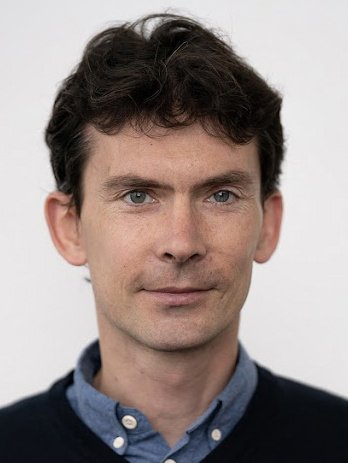
Thomas Vidick (Caltech) named a Simons Investigator
Thomas Vidick, Professor of Computing and Mathematical Sciences, has been named a Simons Investigator by the Simons Foundation. The intent of the Simons Investigators in Mathematics, Physics, Astrophysics and Computer Science programs is to support outstanding theoretical scientists in their most productive years, when they are establishing creative new research directions. Awardees are outstanding theoretical scientists who receive a stable base of research support from the foundation, enabling them to undertake the long-term study of fundamental questions.
The announcement can be found here: https://eas.caltech.edu/news/1429
New qubit candidate: trapped electrons
Electrons have been trapped for the first time in a Paul trap. This opens the path to controlling trapped electron qubits much in the same way as trapped ions with the main differences that no laser light is required and that electrons are much lighter. Thus a trapped electron quantum computer could operate with less technical overhead and faster that a trapped ion system.
Read more in Phys Rev X 11 011019 (2021) and the Physics Focus story by Philip Ball on "New Electron Trap Might Help Quantum Computers" in Physics 14 16.
Simons Colloquium kick off
The Colloquium talks are intended as "an introduction to research in area X", aiming to declutter, and identify the key results and techniques in the area, as well as the most important directions for further research. There will be plenty of time for questions and discussion, as well as an opportunity to meet and hang out with colleagues on gather.town afterwards.
First speaker will be Aram Harrow from MIT.
CIQC Introduction
Realizing the quantum computer is THE scientific challenge of our time. Like previous grand scientific challenges, such as, for example, the human genome project or the direct detection of gravitational waves, quantum computing represents a radical advance in our ability to probe and understand nature. And yet the impact of quantum computing stands out as even greater than other recent grand challenges. We observe that the classical computer now stands as the most powerful scientific tool; for example, it underpins genomics, the detection and interpretation of gravity wave signals, and every other scientific endeavor. If we can potentially revolutionize computing itself, then we revolutionize all scientific efforts in the future.
A future that includes large-scale fault-tolerant quantum computing beckons strongly. As an academic institute, the CIQC takes on the task of future proofing: ensuring that this future comes about, and also looking forward to foresee future challenges to the realization of quantum computing. We meet this task through intensive collaborative research that crosses multiple disciplines, such as chemistry, computer science, engineering, mathematics, materials science, and physics; through a powerful range of education and workforce development; through diligent coordination of research, not just within our Institute but also across all sectors of quantum science and technology; and through strong partnerships, particularly with the Simons Institute for the Theory of Computing (Berkeley) and the Institute for Pure and Applied Mathematics (UCLA).
Join us! Collaborate with us! Learn with us! Onward to the quantum computer!
Center kick-off: 08/28/2020
Good omen: we kicked off the center with nearly a hundred participants from our Institute members four days before our NSF funding start date!
